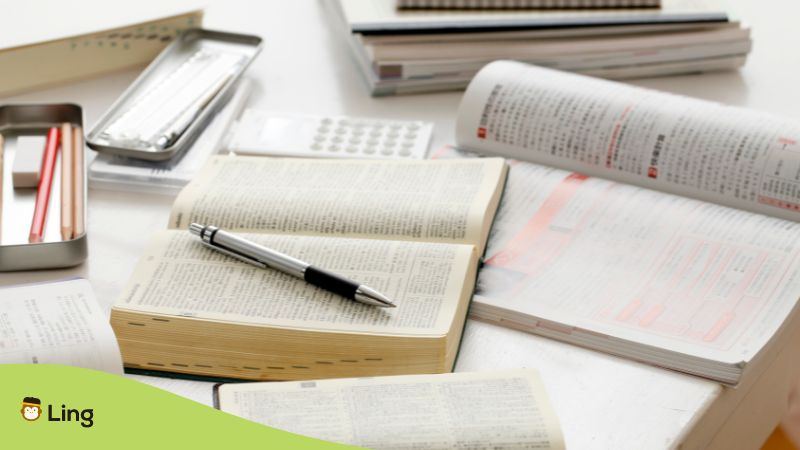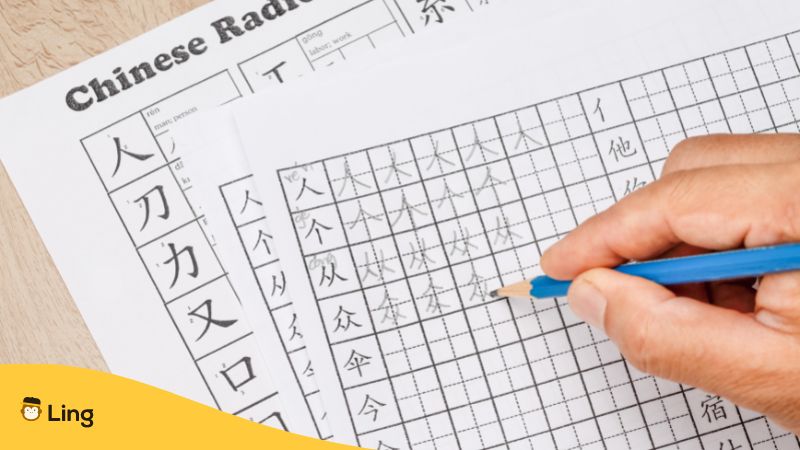Adverbs are an essential part of your Chinese language education. They can help you make your sentences more fluent and natural-sounding. They can also help you avoid awkward or ambiguous phrasing in your sentences. So, if you’re learning Chinese and you want to make your sentences more fluent, then it’s a good idea to learn how to use Chinese adverbs.
In this post, we’ll give you a quick and easy guide to understanding how these important words work in Chinese so you can start using them more effectively in your own speech and writing.
What Is An Adverb?
Adverbs are words that are used to modify verbs, adjectives, or even other adverbs. Their job is to describe a verb or adjective in more detail. In English, they usually end with -ly.
For example, in the sentence “I ran quickly,” quickly is the adverb. It describes how I ran (or perhaps how fast), and it modifies the verb “ran” by telling us more about it.
How To Use Chinese Adverbs
Chinese adverbs work the same as English adverbs. However, they can be tricky because they do not always end with “ly,” like in English. But there’s a way to tell if a word is an adverb or not by looking at its position in a sentence!
In Chinese, adverbs are called 副词 (fù cí) and are usually placed before the main verb of a sentence. So, if a word comes after the subject (noun) and before the verb, it’s probably an adverb. It follows this structure: Subject + Adverb + Verb + Object.
However, this is not always the case. Given the flexibility of the language, many Chinese adverbs are sometimes placed at the very beginning of the sentence or even after the verb. It generally follows this structure: Adverb + Subject + Verb + Object.
Moreover, when an adverb modifies a verb, you can often identify it by the particle 地 (de). This is practically the same meaning as the English suffix -ly.
The most common sentence structure when using an adverb in Chinese is “Subject + Adjective + 地 (de)+ Verb.“
Example:
- English: The boy ran quickly.
- Chinese: 男孩跑得很快。
- Pinyin: Nánhái pǎo dé hěn kuài.

In the following sections, we’ll go through all the different types of adverbs in Chinese and how to use them. Let’s get started!
Chinese Adverbs Of Time
Time is an important factor in all languages. Knowing how to use adverbs of time correctly can make a big difference in your ability to communicate in Chinese.
Chinese adverbs of time are words that tell when something happens. They can be placed before or after the subject in a sentence.
The following are examples of the most common Chinese adverbs of time and a sample sentence for each:
Today 今天 (Jīn Tiān)
- English: I am not feeling well today.
- Chinese: 我今天感觉不舒服。
- Pinyin: Wǒ jīn tiān gǎnjué bú shūfú.
Tomorrow 明天 (Míng Tiān)
- English: I will go to the market tomorrow.
- Chinese: 我明天去市场。
- Pinyin: Wǒ míngtiān qù shìchǎng.
Yesterday 昨天 (Zuó Tiān)
- English: I went to school yesterday.
- Chinese: 我昨天去上学了。
- Pinyin: Wǒ zuó tiān qù shàngxuéle.
Last Year 去年 (Qù Nián)
- English: I have been to Beijing last year.
- Chinese: 我去年去过北京。
- Pinyin: Wǒ qù nián qùguò běijīng.
Tonight 今晚 (Jīn Wǎn)
- English: I will be at the restaurant tonight.
- Chinese: 我今晚会在餐厅。
- Pinyin: Wǒ jīn wǎn huì zài cāntīng.
Now 现在 (Xiàn Zài)
- English: He is leaving now.
- Chinese: 他现在要走了。
- Pinyin: Tā xiàn zài yào zǒule.
The Day Before Yesterday 前天 (Qián Tiān)
- English: It was my birthday the day before yesterday.
- Chinese: 前天是我的生日。
- Pinyin: Qián tiān shì wǒ de shēngrì.
The Day After Tomorrow 后天 (Hòu Tiān)
- English: We will meet again the day after tomorrow.
- Chinese: 我们后天再见面。
- Pinyin: Wǒmen hòu tiān zài jiànmiàn.
Recently 最近 (Zuì Jìn)
- English: I went to Shanghai recently.
- Chinese: 我最近去了上海。
- Pinyin: Wǒ zuì jìn qùle Shànghǎi.

Chinese Adverbs Of Frequency
Adverbs of frequency can be used to indicate how often something happens.
Here is a list of common Chinese adverbs of frequency:
Never 从不 (Cóng Bù)
- English: She has never tried Chinese food.
- Chinese: 她从不 尝试过中国菜。
- Pinyin: Tā cóng bù chángshìguò zhōngguó cài.
Often 经常 (Jīng Cháng)
- English: I often go for a jog in the morning.
- Chinese: 我经常早上去慢跑。
- Pinyin: Wǒ jīng cháng zǎoshang qù mànpǎo.
Always 总是 (Zǒng Shì)
- English: He always wears a hat.
- Chinese: 他总是戴着帽子。
- Pinyin: Tā zǒng shì dàizhe màozi.
Every Day 每天 (Měi Tiān)
- English: I go to the store every day.
- Chinese: 我每天都去商店。
- Pinyin: Wǒ měitiān dū qù shāngdiàn.
Weekly 每周 (Měi Zhōu)
- English: I visit my parents weekly.
- Chinese: 我每周拜访我的父母。
- Pinyin: Wǒ měi zhōu bàifǎng wǒ de fùmǔ.
Monthly 每月 (Měi Yuè)
- English: I pay my phone bill monthly.
- Chinese: 我每月支付电话费。
- Pinyin: Wǒ měi yuè zhīfù diànhuà fèi.
Annually 每年 (Měi Nián)
- English: My rent contract renews annually.
- Chinese: 我的租房合同每年更新一次。
- Pinyin: Wǒ de zūfáng hétóng měi nián gēngxīn yīcì.
Sometimes 有时 (Yǒu Shí)
- English: We sometimes go swimming in the lake.
- Chinese: 我们有时去湖里游泳。
- Pinyin: Wǒmen yǒushí qù hú lǐ yóuyǒng.
Rarely 很少 (Hěn Shǎo)
- English: My grandma rarely goes out these days.
- Chinese: 这些天我奶奶很少出门。
- Pinyin: Zhèxiē tiān wǒ nǎinai hěn shǎo chūmén.
Occasionally 偶尔 (Ǒu’ěr)
- English: I occasionally meet my colleagues for a drink after work.
- Chinese: 下班后我偶尔会和同事一起喝一杯。
- Pinyin: Xiàbān hòu wǒ ǒu’ěr huì hé tóngshì yīqǐ hè yībēi.

Chinese Adverbs of Manner
Chinese adverbs of manner are a little tricky to understand, but once you get the hang of it, they’re not too bad. These adverbs refer to how an action is performed.
The followings are the most common Chinese adverbs of manner and a sample sentence for each:
Slowly 慢 (Màn)
- English: He climbed the stairs slowly.
- Chinese: 他慢慢地爬上楼梯。
- Pinyin: Tā màn man de pá shàng lóutī.
Quickly 快 (Kuài)
- English: Jane runs quickly.
- Chinese: 简跑得很快。
- Pinyin: Jiǎn pǎo dé hěn kuài.
Gently 轻轻地 (Qīng Qīng De)
- English: The boy gently picked up the injured cat.
- Chinese: 男孩轻轻地抱起了受伤的猫。
- Pinyin: Nánhái qīng qīng de bào qǐle shòushāng de māo.
Easily 轻松地 (Qīngsōng De)
- English: Peter passed the physics exam easily.
- Chinese: 彼得轻松地通过了物理考试。
- Pinyin: Bǐdé qīngsōng de tōngguòle wùlǐ kǎoshì.
Politely 礼貌地 (Lǐmào De)
- English: The woman explained politely that we were not allowed to take photos.
- Chinese: 这位女士礼貌地解释说我们不允许拍照。
- Pinyin: Zhè wèi nǚshì lǐmào de jiěshì shuō wǒmen bù yǔnxǔ pāizhào.
Chinese Adverbs Of Degree
Degree adverbs are words or phrases that are used to describe the extent of something, or the intensity of something.
Here is a list of common adverbs of degree:
Very 非常 (Fēi Cháng)
- English: The girl is very beautiful.
- Chinese: 那女孩非常漂亮。
- Pinyin: Nà nǚhái fēicháng piàoliang.
Quite 相当 (Xiāng Dāng)
- English: The lecture was quite boring.
- Chinese: 讲座相当无聊。
- Pinyin: Jiǎngzuò xiāng dāng wúliáo.
Too 太 (Tài)
- English: It is too hot outside to go for a walk.
- Chinese: 外面太热了,不能出去走走。
- Pinyin: Wàimiàn tài rèle, bùnéng chūqù zǒu zǒu.
Extremely 极其 (Jí Qí)
- English: This is an extremely difficult thing to do.
- Chinese: 这是一件极其困难的事情。
- Pinyin: Zhè shì yī jiàn jíqí kùnnán de shìqíng.

Chinese Adverbs Of Place
Chinese adverbs of place are adverbs that describe the location of an action or a state. They are usually placed after the subject and before the verb phrase.
Moreover, many adverbs of place can be used as prepositions when they modify nouns, but their primary role as an adverb is to modify verbs.
Here is a list of common adverbs of place:
Everywhere 到处 (Dàochù)
- English: I looked everywhere for my lost necklace.
- Chinese: 我到处寻找丢失的项链。
- Pinyin: Wǒ dàochù xúnzhǎo diūshī de xiàngliàn.
Anywhere 任何地方 (Rènhé Dìfāng)
- English: You can park anywhere.
- Chinese: 您可以在任何地方停车。
- Pinyin: Nín kěyǐ zài rènhé dìfāng tíngchē.
Nowhere 无处 (Wú Chù)
- English: He is nowhere to be found.
- Chinese: 他无处可寻。
- Pinyin: Tā wú chù kě xún.
Understanding Adverbs In Chinese
That’s it! You’re ready to go. Now you can use adverbs in Chinese like a pro—and you’ll have fun doing it in real life too! Just remember to practice because Chinese adverbs can be a little tricky.
We hope this guide has helped you understand the basics of what Chinese adverbs are and how they work. If you want to learn Chinese the easy way, check out the Ling app!
Learn Chinese With Ling
Are you ready to take your language learning to the next level? Meet Ling App, the ultimate language learning app that will help you master any language you desire. With Ling App, you can learn over 60 languages with interactive lessons, games, and quizzes that make learning fun and engaging.
With the app, you’ll have access to a wide range of tools and resources to help you learn more effectively. From interactive quizzes to over 2000+ lessons, we’ve got everything you need to make learning a new language a breeze. So what are you waiting for?
Download Ling App on App Store and Play Store now!




































































